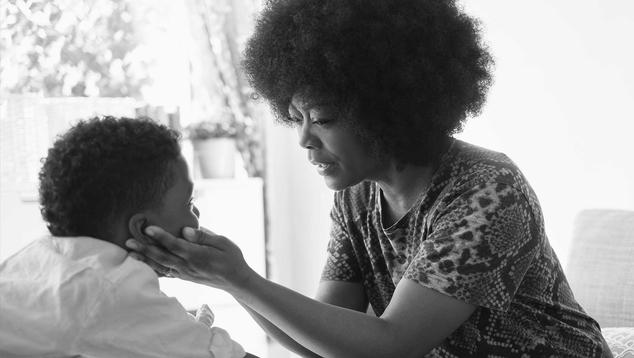Story Highlights
- Three in 10 parents say child's emotional, mental health suffering now
- 33% can wait "as long as necessary" before child's mental health suffers
WASHINGTON, D.C. -- Even as U.S. schools reach the end of a severely disrupted 2019-2020 academic year, they are considering ways for students and staff to safely return to classrooms in the fall. Administrators will be working to understand and address students' learning loss after months of remote schooling and to meet the increased social and emotional needs of children since the pandemic -- all while blunting the potential spread of COVID-19 in schools.
The potential for heightened mental health challenges confronting schools in the fall is evident in new Gallup Panel polling of parents with school-aged children conducted via the web in May. Nearly three in 10 (29%) say their child is "already experiencing harm" to their emotional or mental health because of social distancing and closures. Another 14% indicate their children are approaching their limits, saying they could continue social distancing a few more weeks until their mental health suffers. While children make up relatively few cases among confirmed COVID-19 patients in the U.S., these survey results suggest that pandemic response measures are taking a toll on the wellbeing of some.
| U.S. parents | |||||||||||||||||||||||||||||||||||||||||||||||||||||||||||||||||||||||||||||||||||||||||||||||||||
|---|---|---|---|---|---|---|---|---|---|---|---|---|---|---|---|---|---|---|---|---|---|---|---|---|---|---|---|---|---|---|---|---|---|---|---|---|---|---|---|---|---|---|---|---|---|---|---|---|---|---|---|---|---|---|---|---|---|---|---|---|---|---|---|---|---|---|---|---|---|---|---|---|---|---|---|---|---|---|---|---|---|---|---|---|---|---|---|---|---|---|---|---|---|---|---|---|---|---|---|
| % | |||||||||||||||||||||||||||||||||||||||||||||||||||||||||||||||||||||||||||||||||||||||||||||||||||
| Already experiencing harm to emotional or mental health | 29 | ||||||||||||||||||||||||||||||||||||||||||||||||||||||||||||||||||||||||||||||||||||||||||||||||||
| A few more weeks | 14 | ||||||||||||||||||||||||||||||||||||||||||||||||||||||||||||||||||||||||||||||||||||||||||||||||||
| A few more months | 23 | ||||||||||||||||||||||||||||||||||||||||||||||||||||||||||||||||||||||||||||||||||||||||||||||||||
| As long as is necessary | 33 | ||||||||||||||||||||||||||||||||||||||||||||||||||||||||||||||||||||||||||||||||||||||||||||||||||
| Gallup Panel, May 11-24, 2020 | |||||||||||||||||||||||||||||||||||||||||||||||||||||||||||||||||||||||||||||||||||||||||||||||||||
The results are based on interviews with more than 1,200 parents of children in grades kindergarten through 12 whose school is closed to in-person instruction. Ninety-seven percent of parents say their child's school is currently closed. The sample is drawn from Gallup's probability-based online panel.
It's not just children who are suffering. In early April, Gallup found that 15% of U.S. adults reported that they themselves were already experiencing harm to their own emotional or mental health because of social distancing practices and closures; 18% said they would be suffering in just a few more weeks. One month later, the percentage of adults already experiencing harm increased to 22%, and 13% indicated their emotional and mental health would suffer in a few more weeks. Still, in the same time period in May, more parents indicate that their children's emotional or mental health is already suffering.
Parents with less than a college degree (33%) are more likely than those with a college degree or higher (24%) to say their child's emotional or mental health is already suffering. There may be additional stressors for children whose parents have less educational attainment, as they are disproportionately affected by increased unemployment rates.
Parents were asked to reflect on the impact of various challenges they've faced with remote learning. They are most likely to say that being separated from classmates and teachers is a major challenge (45%).
Among those who say separation is a major challenge of remote learning, more than four in 10 (45%) indicate their child's emotional and mental health is already suffering. Among all parents surveyed, relatively few (14%) say that being separated from classmates and teachers is not a challenge, but this group is less likely to indicate (8%) their child's emotional and mental health is currently experiencing harm.
| Child is already experiencing harm | Child can go as long as is necessary | ||||||||||||||||||||||||||||||||||||||||||||||||||||||||||||||||||||||||||||||||||||||||||||||||||
|---|---|---|---|---|---|---|---|---|---|---|---|---|---|---|---|---|---|---|---|---|---|---|---|---|---|---|---|---|---|---|---|---|---|---|---|---|---|---|---|---|---|---|---|---|---|---|---|---|---|---|---|---|---|---|---|---|---|---|---|---|---|---|---|---|---|---|---|---|---|---|---|---|---|---|---|---|---|---|---|---|---|---|---|---|---|---|---|---|---|---|---|---|---|---|---|---|---|---|---|
| % | % | ||||||||||||||||||||||||||||||||||||||||||||||||||||||||||||||||||||||||||||||||||||||||||||||||||
| Separation from classmates and teachers is a major challenge | 45 | 12 | |||||||||||||||||||||||||||||||||||||||||||||||||||||||||||||||||||||||||||||||||||||||||||||||||
| Separation from classmates and teachers is a minor challenge | 25 | 34 | |||||||||||||||||||||||||||||||||||||||||||||||||||||||||||||||||||||||||||||||||||||||||||||||||
| Separation from classmates and teachers is not a challenge | 8 | 68 | |||||||||||||||||||||||||||||||||||||||||||||||||||||||||||||||||||||||||||||||||||||||||||||||||
| Gallup Panel, May 11-24, 2020 | |||||||||||||||||||||||||||||||||||||||||||||||||||||||||||||||||||||||||||||||||||||||||||||||||||
Implications
Some parents are already concerned for the emotional and mental health of their children in the midst of pandemic response measures. School closures not only upended most students' learning mode, it deeply disrupted students' social networks and interactions with classmates and teachers.
As social distancing restrictions ease and schools begin to plan ways to support children's learning and growth in the upcoming school year, they will also need to consider ways to help support children's social and emotional needs as they reacclimate to school and in-person learning. The challenge will be amplified because schools will be experimenting with new processes intended to stave off the persistent threat that the coronavirus poses to public health.
Collaboration between schools, families, community leaders and health officials will be even more critical to support children's needs in and out of school.
Learn more about how the Gallup Panel works.




